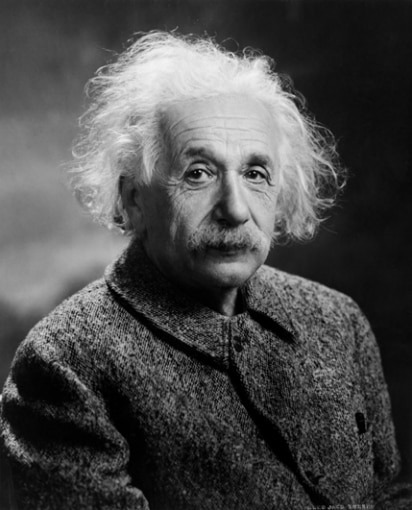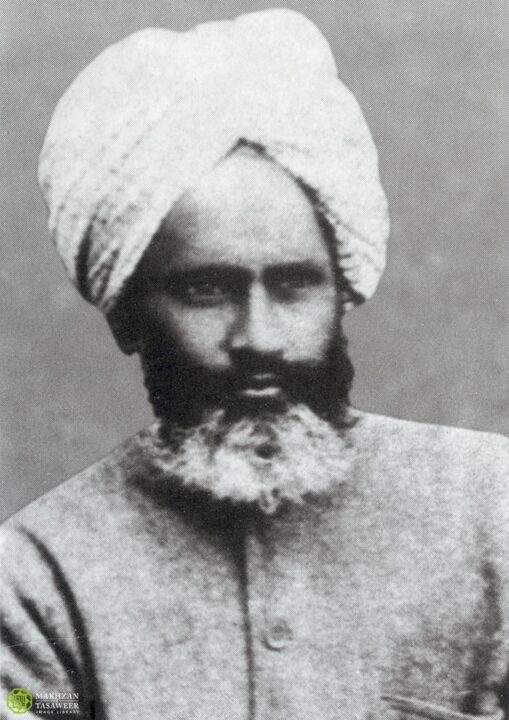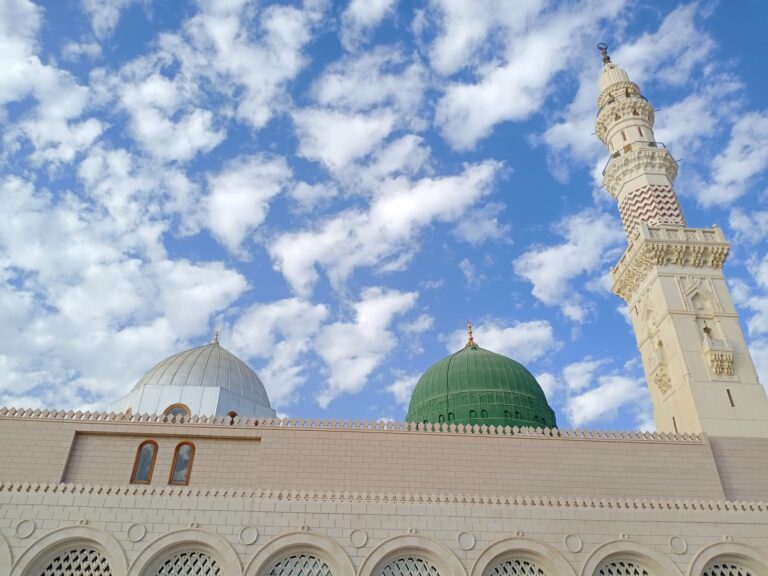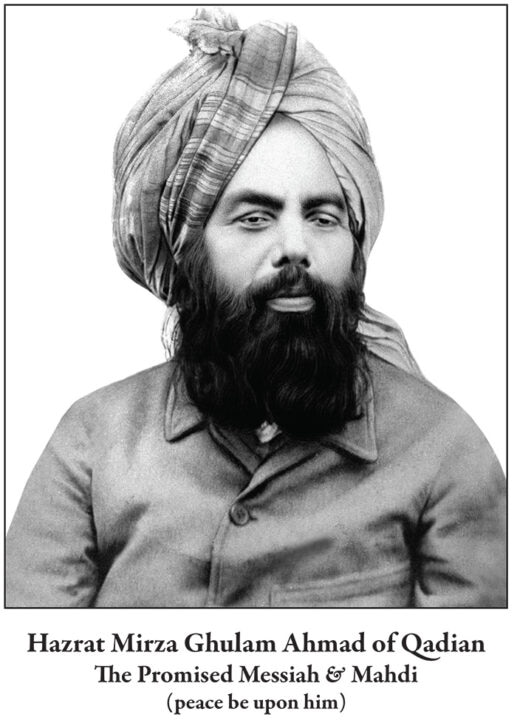Ahmad Kamal, Student, Jamia Ahmadiyya Ghana
In January 1936, a young girl named Phyllis was conflicted as to how science and religion could get along and so, she wrote to one of the greatest scientific minds of our time on behalf of her class and simply asked, “Dear Einstein, do scientists pray?”
Today, it is popularly believed that there exists a tension between science and religion and that one must choose between the facts of science or the “fantasy” of religion. Some scientists have gone so far as to say that modern science makes it impossible to believe in God.

In the last 500 years, there have been conflicts between science and faith – not continuous conflict, but occasional and famous moments of contention before the world.
Arguably, the two most notable ones are Galileo’s disagreement with the church and his sentence to lifetime house arrest in 1632 over his claim of a sun-centered solar system and the Scopes Monkey Trial – an American legal case in July 1925, in which a high school teacher, John T Scopes was accused of violating an Act, which had made it unlawful to teach human evolution in any state-funded school.
After Charles Darwin’s 1859 publication of On the Origin of Species, science and evolution were declared to be tools of Satan and there was a great uproar against the scientific community.
Naturally, this has become one of the most popular/controversial topics in the world. Consequently, we have an inconclusive public opinion as 59% of the US public appears to believe that science and religion are often in conflict. (Pew Research Center, www.pewresearch.org/science/2015/10/22/science-and-religion)
Many such religious scientists believe that investigating the nature of the universe is to scrutinise the work of God Himself, but why should this be the case when the same God Who established religion in the world created the natural world and its laws? Hundreds of verses of the Holy Quran – almost one-eighth of the book – exhort believers to study nature, reflect, make the best use of reason in their search for the ultimate and to make the acquiring of knowledge and scientific comprehension part of one’s life.
Hazrat Khalifatul Masih Vaa, while addressing the Ahmadiyya Muslim Research Association (AMRA) Conference on 14 December 2019, stated:
“The Promised Messiahas has stated that the continued study of physics, astronomy and the sciences will always lead a righteous person towards God Almighty. The more they learn about God’s creation and the world around them, the more they will appreciate the beauty of Allah the Almighty through the wonders of the universe. Once a believer gains such knowledge and insight, he or she is not just able to guide others about the latest scientific developments, rather they will also be tooled with the armoury to prove to the world the existence of that One God, Who is the Creator of all creation.”
Whenever a person studies and ponders over the celestial bodies and the entire universe, it expands their minds to open towards a firm belief in the existence of God Almighty as they see the signs and evidence of His existence all around them.
لَا تُدۡرِکُہُ الۡاَبۡصَارُ ۫ وَ ہُوَ یُدۡرِکُ الۡاَبۡصَارَ ۚ وَ ہُوَ اللَّطِیۡفُ الۡخَبِیۡرُ
“Eyes cannot reach Him but He reaches the eyes. And He is the Incomprehensible, the All-Aware.” (Surah al-An‘am, Ch.6: V.104)
One of God’s attributes is Al-Lateef (mentioned in the verse above) and means the Subtle and not easily fathomable. He is far too subtle for human eyes to behold, but He is also All-Knowing.
Hence, He knows that man cannot survive spiritually unless he acquires knowledge of his Creator. This is why God Himself makes arrangements to enable man to perceive Him, despite him being subtle and hidden from the human eye.
For this reason, He has by design placed clues and hints in His creation so that anyone who wishes to seek him may be steered to Him. The Five-Volume Commentary of the Ahmadiyya Jamaat, discussing this verse, says:
“Human reason alone, unaided by divine help, is incapable of knowing or reaching God. It is God Himself Who reaches the eyes (that is, human understanding) and reveals Himself to man – that is, God has, on the one hand, placed in the human mind a power to search for and know Him, and on the other, He sends down revelation to man, thereby making Himself known to him. Revelation also helps to kindle in human reason a light through which man is able to know God.” (Five-Volume Commentary of the Holy Quran, Vol. 2, p. 480)
God is Omnipresent. The verse quoted above tells us that the knowledge of God is beyond the reach of man. Therefore, God Himself makes arrangements to help man attain knowledge of God and insight into him through subtle means.
Great Scientists have pondered over time and space and have realised that indeed, the universe cries out that there must be a creator.
Albert Einstein (1879- 1955) is considered one of the most important scientists in the world’s history. His discoveries changed the course of modern physics by establishing the field of relativity and by contributing in the area of quantum mechanics. He once wrote in a letter:
“Everyone who is seriously involved in the pursuit of science becomes convinced that some spirit is manifest in the laws of the universe, one that is vastly superior to that of man. In this way, the pursuit of science leads to a religious feeling of a special sort, which is surely quite different from the religiosity of someone more naive.” (Letters of Note, p. 326 [Compiled by Shaun Usher])
Einstein did not believe in a god that religions preach, Who has control over everything, rather he adhered to the pantheistic God of Baruch Spinoza. Nonetheless, the point here is that he acknowledged that a power of some sort exists.

Sir Isaac Newton (1643- 1727) is known as the most influential scientist of the 17th century as his ideas became the foundation of modern physics. Sir Isaac Newton spent a great deal of time on theology, with some saying that it was perhaps more so than science.

Hence in his lifetime, he wrote approximately 1.3 million words on biblical subjects. In his book, The Principia, which is considered as one of the most important works in the history of science, he writes:
“This most beautiful system of the sun, planets, and comets, could only proceed from the counsel and dominion of an intelligent and powerful Being … This Being governs all things, not as the soul of the world, but as Lord over all; and on account of his dominion he is wont to be called Lord God”. (Newton’s Principia, p. 35 [Translated by Andrew Motte])
Another genius inventor, Nikola Tesla (1856-1943), who had around 300 patents to his name adhered to the teachings of his mother, wrote:

“The gift of mental power comes from God, Divine Being, and if we concentrate our minds on that truth, we become in tune with this great power. My mother had taught me to seek all truth in the Bible. Therefore I devoted the next few months to the study of this work.” (My Inventions: The Autobiography of Nikola Tesla, Ch. 5)
Dr Abdus Salam (1926-1996), the greatest scientist that Pakistan has ever produced and first Muslim Nobel laureate, attributed his success to his faith. He says:

“I have myself never seen any dichotomy between my faith and my science – since faith was predicated for me by the timeless spiritual message of Islam, on matters on which physics is silent and will remain so. It was given meaning by the very first verse of the Quran, after Surah Fatiha. This is the book, wherein there is no doubt, guidance to the God-fearing who believe in the Unseen. The Unseen means beyond the reach of human ken.” (Renaissance of Sciences in Islamic Countries, p. 149)
Sir Francis Bacon (1561-1626), whose works are credited with developing the scientific method and remained influential throughout the scientific revolution, said:

“God never wrought miracle to convince atheism, because his ordinary works convince it. It is true, that a little philosophy inclineth man’s mind to atheism; but depth in philosophy bringeth men’s minds about to religion.” (The Essays of Sir Francis Bacon, Ch. 16, p. 71)
The infamous Galileo Galilei (1564-1642), who is considered the father of modern science and made major contributions to the field of physics, astronomy, cosmology, mathematics and philosophy said:

“I do not feel obliged to believe that the same God who has endowed us with senses, reason, and intellect has intended us to forego their use and by some other means to give us knowledge which we can attain by them. He would not require us to deny sense and reason in physical matters which are set before our eyes and minds by direct experience or necessary demonstrations.” (Letter to the Grand Duchess Christina of Tuscany [1615], p. 5)
God has deemed humans as the “best of creation” because we have been granted intelligence and understanding. We have been granted the potential to distinguish right from wrong. We have been given the ability to think and comprehend.
The subtle indications of God’s existence in the Universe nudge humanity to tread the path to God. Science can help us reflect and take us to believe that there should be a God. But, as the Promised Messiahas taught, personal experience of God is the only way towards certainty of belief.


















